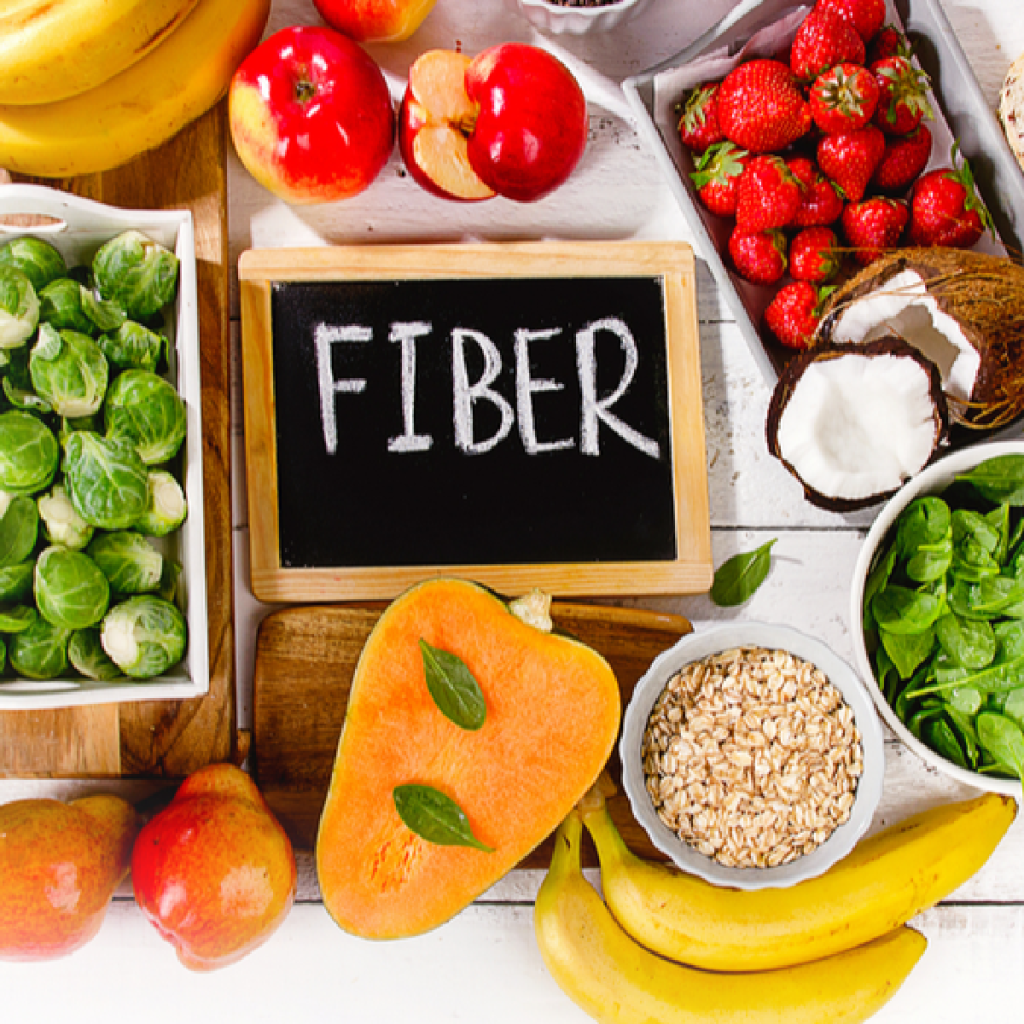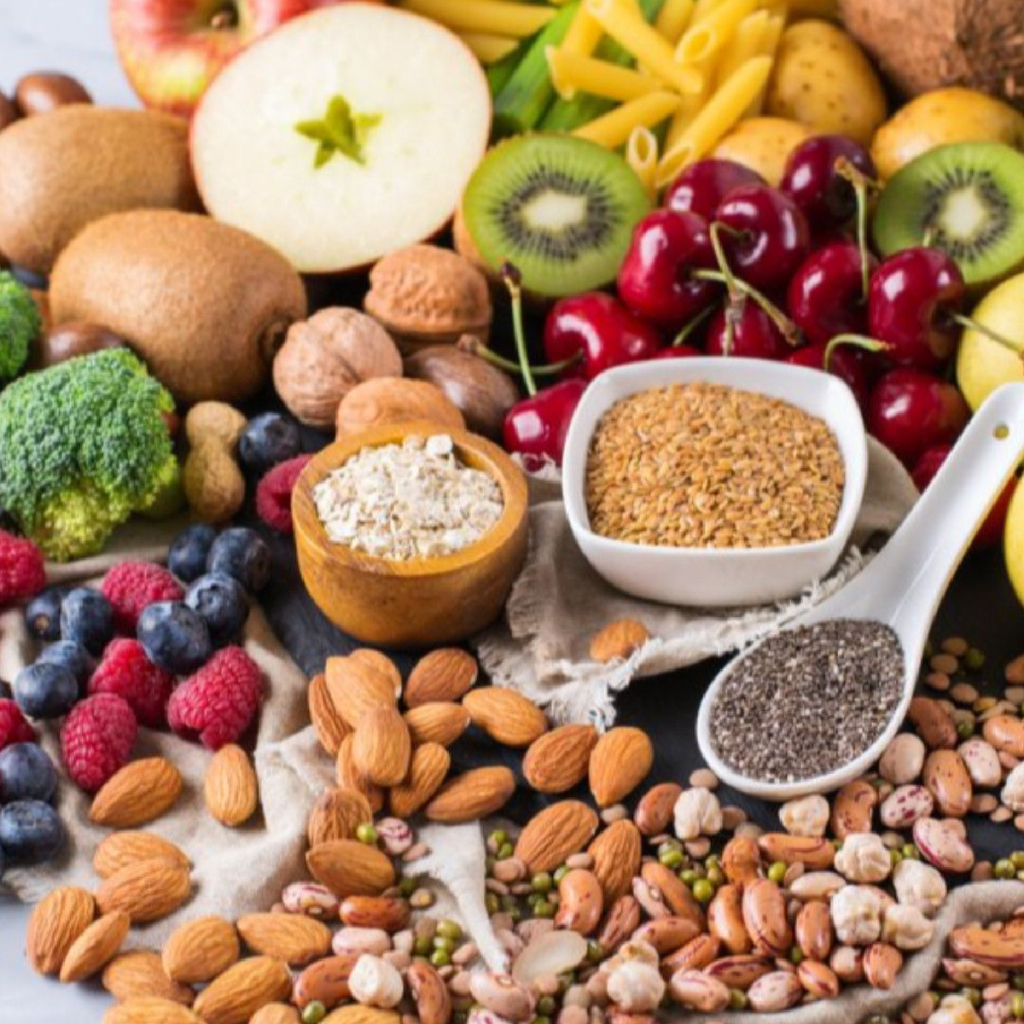Discover the impact of fiber on metabolism and how it can help boost your body’s calorie-burning potential.
How Does Fiber Affect Metabolism?
The topic of metabolism often gets thrown around when discussing weight loss or overall health. But what exactly is metabolism and how does it work? And more importantly, what role does fiber play in all of this? In this article, we’ll explore the fascinating relationship between fiber and metabolism, uncovering the ways in which fiber affects our bodies and why it’s so important for our overall well-being.

Understanding the Basics of Metabolism
Before we dive into the nitty-gritty details of how fiber impacts metabolism, let’s take a moment to understand what metabolism really means. Essentially, metabolism is the process by which our bodies convert the food we eat into energy. It involves a series of chemical reactions that break down nutrients and convert them into the fuel our bodies need to function.
Metabolism is a fascinating and complex process that occurs in every cell of our bodies. It is like a well-orchestrated symphony, with each step carefully regulated to ensure optimal energy production. The efficiency of our metabolism can vary from person to person, and understanding its intricacies can help us make informed choices about our diet and lifestyle.
The Role of Metabolism in the Body
Metabolism is responsible for many vital functions in our bodies, such as maintaining body temperature, repairing cells, and supporting the immune system. It’s like the engine that keeps our bodies running smoothly. Without metabolism, our bodies would not be able to perform basic functions necessary for survival.
One of the most important roles of metabolism is in weight management. Our metabolism determines how many calories we burn at rest, known as our basal metabolic rate (BMR). Understanding the factors that influence our metabolism can help us make adjustments to our lifestyle and diet to achieve our weight goals.
Key Factors Influencing Metabolism
Several factors can influence an individual’s metabolism, including age, gender, genetics, and body composition. While we may not be able to change our age or genetics, we do have some control over our metabolism. That’s where fiber comes into play.
Fiber is a type of carbohydrate that is not digested by the body. Instead, it passes through the digestive system relatively intact. This may sound like a disadvantage, but it actually has numerous benefits for our metabolism and overall health.
When we consume fiber-rich foods, such as fruits, vegetables, and whole grains, they take longer to digest. This slow digestion process helps regulate blood sugar levels and prevents spikes in insulin, a hormone that can promote fat storage. Additionally, fiber adds bulk to our diet, making us feel fuller for longer and reducing the likelihood of overeating.
Furthermore, fiber acts as a prebiotic, providing nourishment for the beneficial bacteria in our gut. These bacteria play a crucial role in metabolism by breaking down certain types of fiber into short-chain fatty acids, which can have positive effects on our overall health and metabolism.
Incorporating fiber into our diet is a simple yet effective way to support a healthy metabolism. Aim to include a variety of fiber-rich foods in your meals and snacks to reap the benefits. Your body will thank you!
The Nutritional Importance of Fiber
Now that we have a basic understanding of metabolism, let’s shift our focus to the nutritional powerhouse known as fiber. Fiber is a type of carbohydrate that our bodies cannot digest, meaning it passes through our digestive system relatively intact. Although it may not provide energy like other macronutrients, fiber is crucial for maintaining a healthy diet.
Fiber is often referred to as “nature’s broom” due to its ability to sweep through our digestive system, keeping things running smoothly. But what exactly is fiber and why is it so important?
Different Types of Fiber
There are two main types of fiber – soluble fiber and insoluble fiber. Soluble fiber dissolves in water, forming a gel-like substance that helps slow down digestion and regulate blood sugar levels. It can be found in foods such as oats, beans, and fruits. On the other hand, insoluble fiber does not dissolve in water and adds bulk to our stools, aiding in regular bowel movements. Foods rich in insoluble fiber include whole grains, nuts, and vegetables.
Both types of fiber are important for our overall health and well-being. Soluble fiber helps to lower cholesterol levels and control blood sugar, while insoluble fiber promotes regularity and prevents constipation.
How Fiber is Processed in the Body
When we consume fiber-rich foods, they travel through our digestive system largely intact. As they do, fiber performs a variety of important functions. It adds bulk to our stools, promoting healthy bowel movements and preventing constipation. It also helps regulate blood sugar levels by slowing down the absorption of sugar into the bloodstream.
But what does all of this have to do with metabolism? Well, the presence of fiber in our diet can actually help boost our metabolism. When we consume foods high in fiber, our bodies have to work harder to break them down and extract the nutrients. This increased effort leads to a higher metabolic rate, meaning we burn more calories throughout the day.
In addition to its impact on metabolism, fiber also plays a role in weight management. High-fiber foods tend to be more filling and satisfying, which can help prevent overeating and promote weight loss. By adding bulk to our meals, fiber helps us feel fuller for longer, reducing the likelihood of snacking on unhealthy foods.
Furthermore, fiber acts as a prebiotic, providing nourishment for the beneficial bacteria in our gut. These bacteria play a crucial role in maintaining a healthy digestive system and supporting our overall immune function.
So, as you can see, fiber is not just an ordinary carbohydrate. It is a nutritional powerhouse that offers a wide range of health benefits. By incorporating fiber-rich foods into our diet, we can support our digestion, regulate blood sugar levels, boost our metabolism, and promote weight management. So, next time you’re planning your meals, don’t forget to include plenty of fiber!
The Connection Between Fiber and Metabolism
Okay, so we’ve established that fiber is important for our overall health. But how does it specifically impact our metabolism? Well, it turns out that fiber can play a significant role in keeping our metabolism firing on all cylinders.
But let’s dive deeper into the fascinating relationship between fiber and metabolism. One of the key ways in which fiber affects metabolism is through its impact on digestive health. As we mentioned earlier, fiber adds bulk to our stools and promotes regular bowel movements. But what does this mean for our metabolism?
When our digestive system is functioning smoothly, thanks to the help of fiber, nutrients from the food we consume are absorbed efficiently. This means that our body can extract the maximum amount of energy from the food we eat, which is essential for a healthy metabolism. Additionally, by promoting regular bowel movements, fiber ensures that waste is eliminated effectively, preventing any build-up that could hinder our metabolism.
But the impact of fiber on metabolism doesn’t stop there. Fiber can also influence our energy production. When we consume foods rich in fiber, such as whole grains, fruits, and vegetables, they take longer to digest and break down. This slower digestion process means that energy is released more gradually into our bloodstream.
So, what does this mean for our metabolism? Well, when energy is released slowly and steadily, our bodies can sustain a consistent level of energy throughout the day. This steady supply of energy helps to support an efficient metabolism, allowing our body to efficiently burn calories and maintain a healthy weight.
Furthermore, the slow release of energy from fiber-rich foods can also help to prevent spikes in blood sugar levels. This is particularly important for individuals with conditions like diabetes, as it helps to regulate blood sugar and maintain overall metabolic health.
It’s clear that fiber is not only essential for our digestive health but also plays a crucial role in supporting a healthy metabolism. By promoting efficient nutrient absorption, preventing waste build-up, and sustaining a steady level of energy, fiber ensures that our metabolism functions optimally.
The Benefits of a High-Fiber Diet
Now that we understand how fiber affects metabolism, let’s dive into the many benefits of incorporating fiber into our daily diet.
When it comes to weight management, fiber can be a valuable ally. Foods high in fiber tend to be more filling and can help control our appetite. By adding bulk to our meals without adding excessive calories, fiber keeps us feeling satisfied and reduces the likelihood of overeating.
But the benefits of fiber extend beyond just weight management. Fiber also plays a vital role in managing blood sugar levels. By slowing down the absorption of sugar into the bloodstream, fiber helps prevent sudden spikes and crashes in blood sugar. This stabilizing effect can be particularly beneficial for individuals with diabetes or those at risk of developing the condition.
In addition to its impact on weight and blood sugar control, fiber has numerous other health benefits. For starters, a high-fiber diet can help promote a healthy digestive system. Fiber adds bulk to our stool, making it easier to pass and reducing the risk of constipation. It also feeds the beneficial bacteria in our gut, promoting a healthy balance of gut flora.
Furthermore, fiber has been linked to a reduced risk of developing certain chronic diseases. Studies have shown that a high-fiber diet can lower the risk of heart disease by reducing cholesterol levels and improving overall heart health. It may also help prevent certain types of cancer, such as colorectal cancer, by promoting regular bowel movements and preventing the buildup of harmful substances in the colon.
Not only does fiber benefit our physical health, but it also has positive effects on our mental well-being. Research suggests that a high-fiber diet may help improve mood and reduce symptoms of depression and anxiety. This could be due to the impact of fiber on gut health, as the gut-brain connection is becoming increasingly recognized as an important factor in mental health.
So, as you can see, incorporating fiber into our daily diet can have a wide range of benefits. From weight management and blood sugar control to promoting a healthy digestive system and reducing the risk of chronic diseases, fiber is an essential nutrient that should not be overlooked.
Incorporating More Fiber into Your Diet
Now that we’ve established the numerous benefits of fiber, you might be wondering how to incorporate more of it into your diet. Don’t worry – it’s easier than you think!

Fiber-Rich Foods to Include in Your Diet
There are plenty of delicious, fiber-rich foods that you can add to your daily meals. Fruits, vegetables, whole grains, beans, and legumes are all great choices. Get creative in the kitchen – try adding berries to your morning cereal, swapping refined grains for whole grain alternatives, or experimenting with different bean-based recipes.
Tips for a Gradual Increase in Fiber Intake
If you’re not used to consuming a lot of fiber, it’s important to gradually increase your intake. Sudden changes to your fiber consumption can lead to digestive discomfort. Begin by adding small servings of fiber-rich foods to your meals and gradually increase the portion sizes over time. And of course, don’t forget to drink plenty of water to help fiber work its magic.
So there you have it – the fascinating ways in which fiber affects metabolism. From supporting digestive health to regulating blood sugar and aiding in weight management, fiber truly is a superhero nutrient. So why not give your metabolism a boost and start incorporating more fiber-rich foods into your diet today? Your body will thank you!







